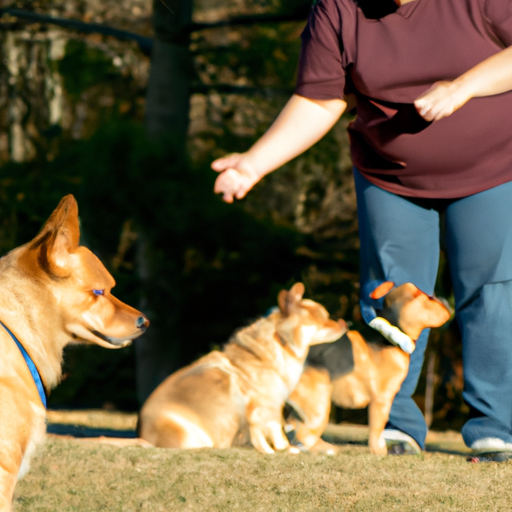Introduction
As a caregiver, you naturally want the best for your pet. You understand the significance of training your furry friend, especially when it comes to interacting—or rather, not interacting—with other dogs. This guide will walk you through the nuances of how to train your dog to ignore other dogs, providing you with practical tips and insights.
Understanding Your Dog’s Behavior
Before we jump into training techniques, let’s try to understand why your dog behaves the way it does. Dogs are social animals, and their reactions to other dogs can be influenced by various factors like fear, excitement or territorial instincts.
- Fear: If your dog had a negative experience with another dog in the past, it might react out of fear when it encounters other dogs.
- Excitement: Some dogs just get too excited at the sight of their fellow canines, making them difficult to control.
- Territorial Instincts: Dogs can be very protective of their humans and might see other dogs as a threat.
Training Techniques
Now that we’ve touched on the why, let’s talk about the how. Here are some techniques you can use:
- Positive Reinforcement: Reward your dog when it behaves well in the presence of other dogs. This could be in the form of treats, praises, or petting.
- Distraction: Use toys or treats to divert your dog’s attention when another dog is nearby.
- Obedience Training: Teach your dog basic commands like ‘sit’, ‘stay’, and ‘leave it’. These commands can be very helpful in controlling your dog’s behavior.
- Desensitization: Gradually expose your dog to other dogs in a controlled environment. Start with a distance and gradually decrease it as your dog gets more comfortable.
| Training Method | Pros | Cons |
|---|---|---|
| Positive Reinforcement | Increases good behavior | May require patience |
| Distraction | Removes focus from other dogs | Can be challenging if the dog is overly excited |
| Obedience Training | Gives you control over your dog’s behavior | Requires consistent practice |
| Desensitization | Helps your dog get comfortable with other dogs | Can be time-consuming |
Finding Professional Help
If you’re struggling to train your dog, don’t worry. You’re not alone, and there are professionals who can help. Dog trainers and behaviorists have the knowledge and experience to help you navigate this journey. They can provide customized training plans based on your dog’s behavior and temperament.
Maintaining Training
Finally, remember that training is not a one-time thing. It requires consistency and patience. Continue to reinforce good behavior and gradually increase the challenges for your dog.
FAQs
Q: How long will it take to train my dog to ignore other dogs?
A: It varies for each dog and depends on the consistency of training, but you can expect to see changes in a few weeks.
Q: What should I do if my dog gets aggressive with other dogs?
A: If your dog is showing signs of aggression, it’s best to consult with a professional dog trainer or behaviorist.
Q: Can old dogs be trained to ignore other dogs?
A: Yes, dogs of any age can be trained. However, it might take a bit more time and patience with older dogs.
Q: Is it necessary to train my dog to ignore other dogs?
A: It’s not about ignoring other dogs entirely, but rather teaching your dog to stay calm and controlled in their presence. This is crucial for your dog’s safety and for a peaceful co-existence with other dogs.
Remember, every dog is unique, and what works for one might not work for another. Be patient, consistent, and loving in your training journey. Your dedication will pay off in the form of a well-behaved furry friend who knows how to act around other dogs.



